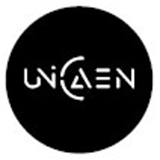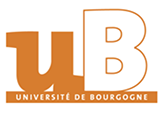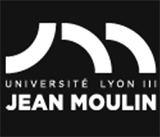Introduction
Arts and Crafts ParisTech, formerly known as the National Higher School of Technology, is a French public engineering school trusted by the French Ministry of Higher Education and Research. Its founding purpose is to train senior engineers in the fields of mechanical engineering, energy engineering and industrial engineering, and also provide continuing education courses for working engineers and senior executives in the industrial field.
Overview
Number of students: The school has about 19,529 students.
Campus distribution: The school's campuses are located in Paris, Aix-en-Provence, Lille, Angers, Bordeaux, Cluny, Châlons-en-Champagne, Metz and other places.
History
The school was founded in 1780 and is one of the oldest institutions and the most famous engineering schools in France. After creating the ParisTech alliance with eight other famous engineering schools, it was renamed Arts and Crafts ParisTech.
Foundation time
1780.
School strength
Teaching quality: Academic education covers engineering degree courses, master's research direction majors and doctoral study courses, providing 20 There are multiple master's research directions and more than 20 professional master's programs. The courses focus on combining theory with practice, cultivating students' engineering practice ability and innovative thinking, and graduates have high competitiveness in the engineering field.
Faculty: It has a high-level teaching team. The teachers not only have profound academic attainments, but also have rich engineering practice experience, and can provide students with professional guidance and cutting-edge engineering knowledge.
Scientific research level: The school has 23 research laboratories and 2 doctoral colleges. It has achieved remarkable results in research and teaching fields such as mechanics, materials science and technology, energy systems and fluids, industrial design, risk management and decision-making, and has made important contributions to the development of engineering technology.
Nature of the school
Public.
Educational philosophy
Committed to cultivating senior engineers with solid engineering foundation, innovation ability and practical ability, focusing on improving students' comprehensive quality, enabling students to have the ability to solve complex engineering problems, as well as good teamwork spirit and professionalism, to provide excellent talents for industrial and social development.
Key laboratories and disciplines
Key laboratories: The school's 23 research laboratories cover multiple engineering fields, such as mechanical engineering laboratories, materials science laboratories, energy systems laboratories, etc. These laboratories are equipped with advanced experimental equipment and instruments, providing good research conditions for researchers and students.
Key disciplines: Mechanics, materials science and technology, energy systems and fluids, industrial design, risk management and decision-making are the school's key disciplines. In these disciplines, the school's teaching and research level is at the forefront of France and even the world.
Departments
The school has not clearly divided its departments. It mainly conducts teaching and research activities in the fields of mechanical engineering, energy engineering and industrial engineering. It has set up many majors, such as craft engineer major, mechanical materials and technology major, energy system and fluid major, sustainable living and construction major, etc.
Ranking
Ranked 120th in the Times Higher Education Global University Graduate Employability Rankings 2023-24. .
Expenses
Tuition fees in public schools are relatively low. The tuition fees for general engineering degree courses range from a few hundred euros to more than a thousand euros per year. The specific fees vary depending on the major and grade. In addition, certain registration fees and social insurance fees are required.
Campus
Campus environment: The architectural styles of each campus are diverse, integrating historical and modern elements. The campus facilities are complete, including modern teaching buildings, laboratories, libraries, gymnasiums, canteens, dormitories, etc., providing students with a good learning and living environment.
Campus culture: The school pays attention to campus culture construction, organizes various academic lectures, science and technology competitions, cultural activities, etc., creating a strong academic atmosphere and innovative culture, promoting exchanges and cooperation among students, and enriching students' extracurricular life.
-

University of Angers
-

University of Caen Normandy
-

University of Bordeaux
-

Claude Bernard University Lyon 1
-

University of Burgundy
-

CY Cergy Paris University
-

Clermont Auvergne University
-

University of Artois
-

Jean Moulin University Lyon 3
-

University of Franche-Comté
-

Mesoamerican University
-

Istmo University
-

Mariano Galvez University of Guatemala
-

Regional University of Guatemala
-

Galileo University
-

Francisco Marroquín University
-

Rafael Landívar University
-

University of the Valley of Guatemala
-

University of San Carlos of Guatemala
-

Technological Institute of Tlaxcala Plateau
-

Golfo University
-

Technological University of South Sonora
-

Technological University of Huejotzingo
-

Tizimín Institute of Technology
-

Chilpancingo Institute of Technology

